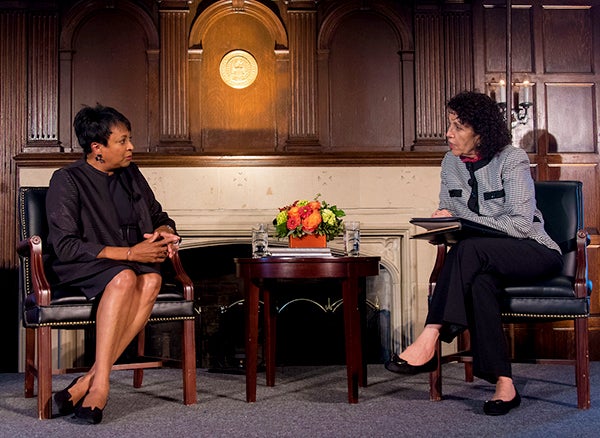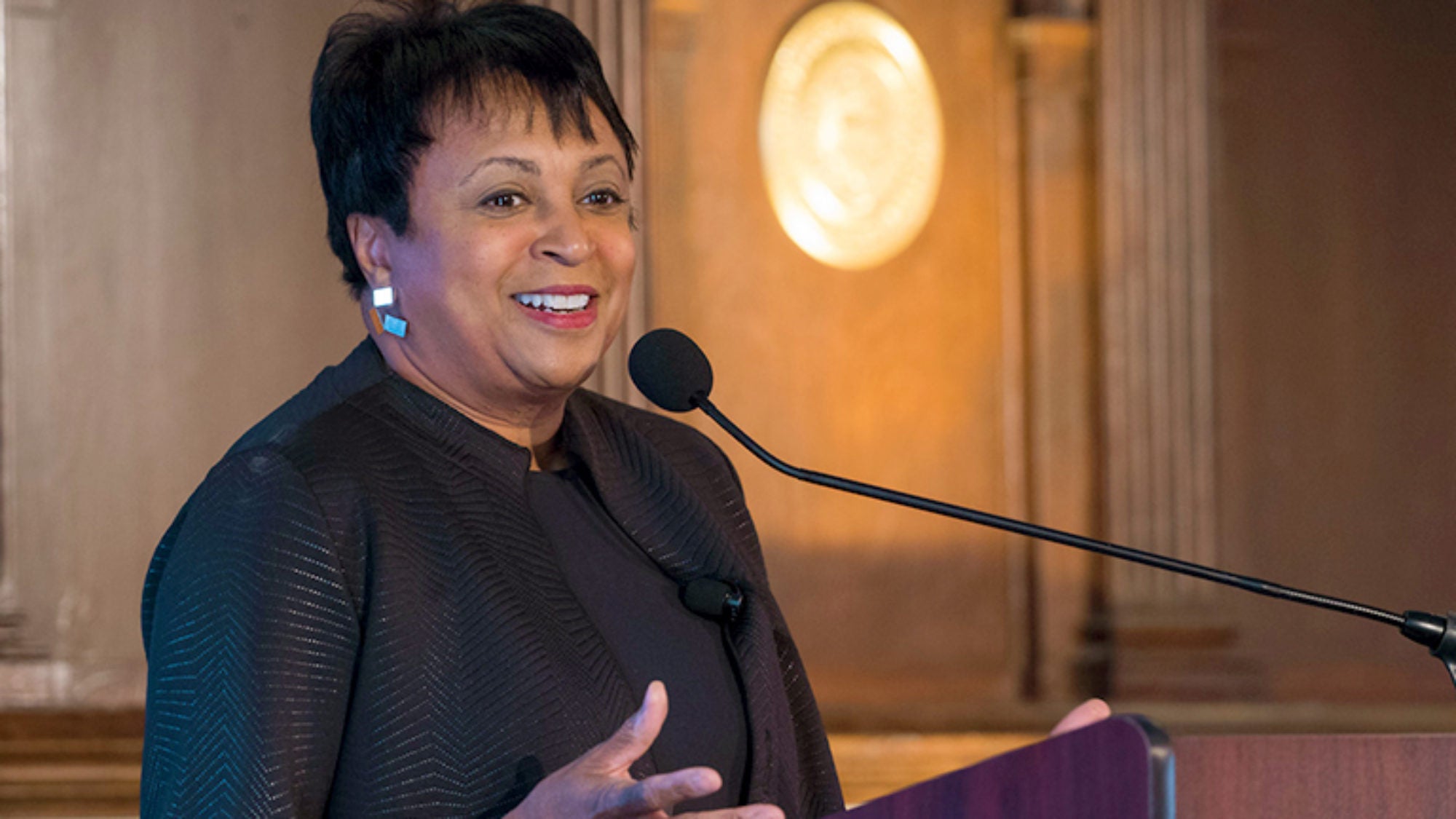Search engines and ever-changing technology have changed the shape of the traditional library, U.S. Librarian of Congress Carla Hayden said at Georgetown last week, but the institutions continue to be about “the people, empowerment and connecting.”
“There was a real concern about 20 years ago that libraries as physical entities were going out of business,” Hayden said during her Sept. 29 talk on libraries in the digital age. “What we see now is that they are not going out of business, and they are viewed in this information ecosystem as the trusted place.”
Technology has forced libraries and librarians – whom Hayden refers to as the “original search engines” – to think about the industry’s main purpose, she explained.
People, Empowerment, Connecting
“Are we in the book business? No,” she said. “We are in the information business, [but] as the technology ecosystem has developed, we’re questioning that. … If we’re not in the information business, then it’s the people, empowerment and connecting.”
She called libraries a “trusted source of information.”
“With that trust comes responsibility,” she explained, adding that the physical and virtual collections of the Library of Congress should be secure.
Unique Collections
One of Hayden’s goals is to make Library of Congress information and material accessible to all, and she believes targeted digitization is one way to meet that goal.
She talked about a room “the size of a football field” that contains “boxes and boxes” of documents related to Alexander Hamilton’s wife, Eliza.
All of the material in the boxes needs to be catalogued, processed, treated, digitized and tagged with search terms, she said.
She believes having a citizen archivist program – similar to the one at the National Archives – would help with digitizing the large collections distinct to the Library of Congress.
A First for the Library
Hayden became the first African American and first woman to lead the Library of Congress on Sept. 14, 2016, after being nominated by then-President Obama.
She previously served as CEO of the Enoch Pratt Free Library in Baltimore and as a member of the National Museum and Library Services Board.
She also has held positions at the Chicago Public Library – including deputy commissioner and chief librarian and served as an assistant professor for library and information science at the University of Pittsburgh.
Hayden has noted that her ancestors were forbidden to read, and said she views her role as a librarian as being just as much about social justice as it is about books.
Boots on the Ground

“Believe it or not, I had to think [twice] about being the 14th Librarian of Congress,” recalls Hayden, who earned her Ph.D. from the Graduate Library School of the University of Chicago.
As leader of Pratt Free Library in Baltimore, she knew she would be leaving a place that served many purposes for the people in the community, including an after-school center for Baltimore teens that provided homework assistance and college and career counseling.
“I knew the work that I was doing, it was boots on the ground,” Hayden said.
She was recognized for these outreach services and became the first African American to receive the Library Journal’s Librarian of the Year Award.
America’s Library
Georgetown President John J. DeGioia, who introduced Hayden, said libraries, and particularly the Library of Congress, have contributed to sustaining scholarship and learning experiences.
“As a university located here in our nation’s capital, we are the beneficiaries of another extraordinary campus, the Library of Congress,” DeGioia said in his opening remarks. “While we benefit from its presence here in Washington, D.C., the Library and its contributions are present in so many places around our nation, around the world, because of its efforts to embrace digital access and learning.”
Artemis Kirk, who just stepped down from her 16-year position as university librarian, sat down with Hayden for a Q&A session following the talk.
“Carla Hayden’s visit to Georgetown was a wonderful opportunity for our community to hear America’s Librarian talk about America’s Library,” Kirk said after the talk. “Dr. Hayden’s leadership is invigorating the essential role that the Library of Congress plays for libraries, for Congress and for the American people in making critical information available.”
